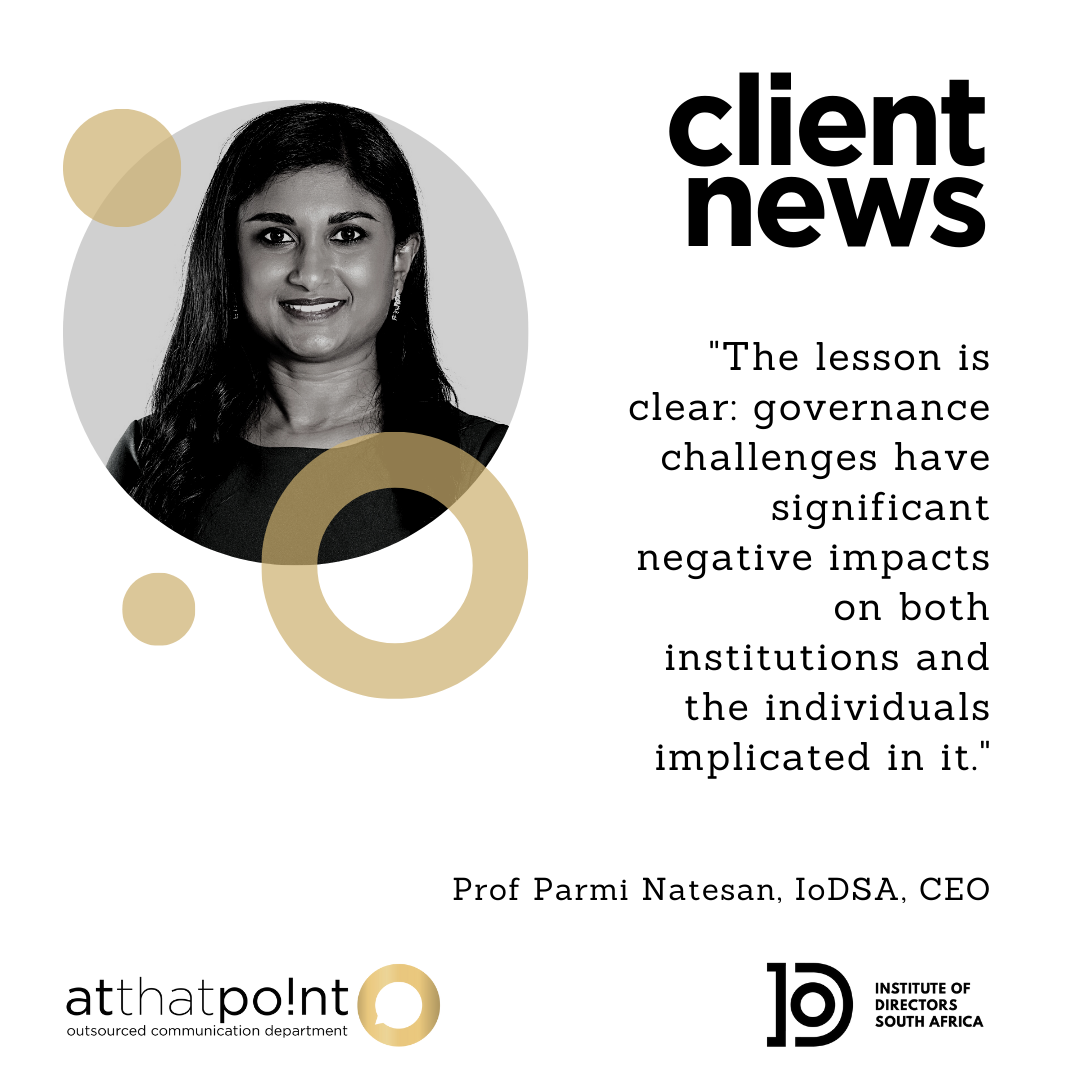|
The independent investigation into the governance at the University of Cape Town (UCT) has been widely covered, and consequences are evident. UCT has already indicated it is taking actions to restore the university community and regain public trust, while according to a SENS announcement, the former chair of the Council has just resigned from one of the boards she sits on in order to take the findings on review.
Professor Parmi Natesan, CEO of the Institute of Directors in South Africa (IoDSA) says the lesson is clear: governance failure has significant negative impacts on both institutions and the individuals implicated in it. “The panel’s conclusions, which can be found in paragraphs 651-682, and its recommendations, should be required reading for all board members,” she says. Some key themes identified by Professor Natesan include: Leaders must be suitable people—and know how to fulfil their roles. Institutions cannot prosper if their boards (Council, in the case of UCT) and executives do not have the right personal qualities, skills and experience to fulfil their roles satisfactorily. For this reason, given the greatly increased scope of a board member’s responsibilities, the IoDSA has long advocated that directorship should be recognised as a regulated profession. This would enable directors to gain the necessary skills and to keep them updated, require directors to be bound by a code of conduct, and would mean that directors could be disciplined and have their license to practice removed. A key directorial responsibility is the legal duty to act in the best interests of the organisation, in good faith and for proper purpose with care, skill and diligence, something that the report indicates some UCT Council members seem not to have practiced in numerous instances. For instance, the report indicates that the former Council “failed to act on the information…, leaving many members of staff vulnerable to further abuse of power” (660). It further refers to the vice-chancellor and chair advancing “their own interests, instead of UCT’s” (Recommendation VIII). The board also has a responsibility for appointing a CEO with the right levels not only of technical competence but also moral compass and the personality to lead—another key responsibility that the previous UCT Council seems to have failed to live up to. For example, the report indicates that the selection committee appointed the vice-chancellor, despite “clear evidence of her inability to lead and manage senior executives” (657). A key recommendation by the panel was that the process for nominating and selecting Council members should be revisited to ensure that fit and proper persons are selected in terms of current law and also King IV. Who gets selected to serve on boards or similar governing bodies is crucial, as the IoDSA has continually pointed out. Board chairs have a vital role. Concerning the CEO particularly, the board chair has leadership in holding the CEO accountable for his/her performance and conduct. Various paragraphs in the report indicate this not to have been the case. Codes of conduct are important but must be policed. UCT’s former vice-chancellor was found to have breached the Council’s Code of Conduct, as did the former chair of Council. Furthermore, Recommendation IX of the report indicates “multiple instances of violations of the Code of Conduct by members of Council”. Boards have a responsibility to act decisively in these instances, and hold others accountable for their actions. Role clarity is crucial. The report findings indicate that many of UCT’s governance problems derived from the fact that board members and executives constantly strayed out of their lanes, which we can assume to have been either deliberate interference or a lack of understanding of their role. For example, the Council “irregularly… [involved] itself in day-to-day management rather than focusing its attention on governance and accountability based on UCT’s strategic plan” (653). “These governance failures seem to have had a devastating effect on UCT’s reputation, and in the work environment at the institution. I cannot stress enough the importance of understanding what its specific governance failures were, and then applying King IV’s best-practice recommendations to help avoid them in future,” Professor Natesan concludes. “As we see again, governance excellence is critical to an organisation’s reputation and, indeed, its ability to function properly.” ENDS MEDIA CONTACT: Stephné du Toit, [email protected], 084 587 9933, www.atthatpoint.co.za For more information on the IoDSA please visit: Website: www.iodsa.co.za X (Twitter): @The_IoDSA LinkedIn: Institute of Directors in South Africa Company Page Facebook: Institute of Directors South Africa
0 Comments
Leave a Reply. |
Archives
July 2024
Categories
All
|


 RSS Feed
RSS Feed